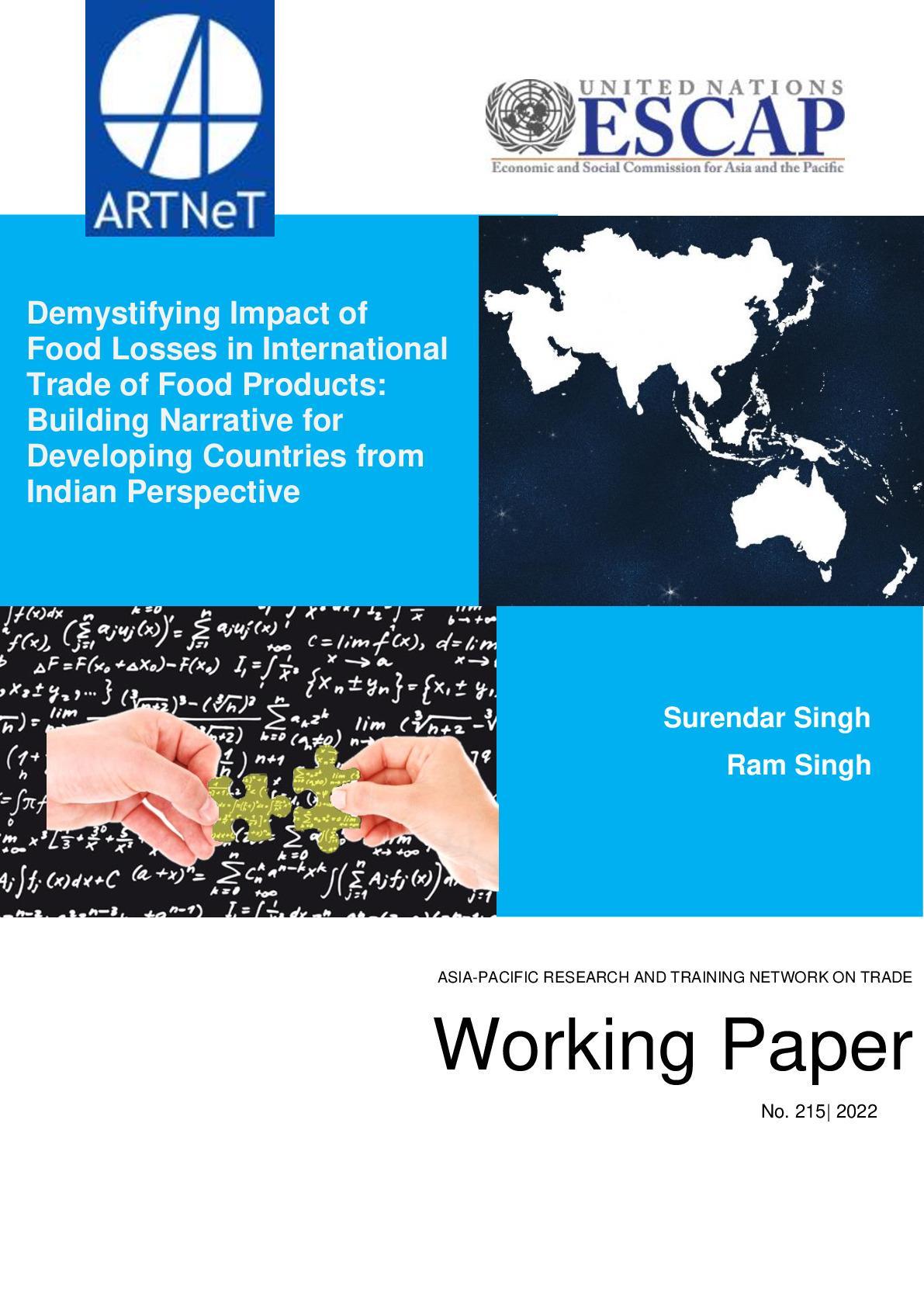Demystifying Impact of Food Losses in International Trade of Food Products: Building Narrative for Developing Countries from Indian Perspective

Food loss remains one of the central points of collective action around the world, as reflected in the 2030 Sustainable Development Agenda, but this issue is far more concerning for the developing countries. Several studies highlight the level and stages of food losses. However, there is limited work on understanding the food losses in the context of international trade. With ever-increasing volume of international trade of food products and understanding the levels and stages of food losses, this study aims to understand food losses in international trade from the context of developing countries. The study is based on a primary survey of three largest traded food products of India and examines the nature, causes, level and stages of food losses. It maps-out the entire journey of international movements of exported as well as imported food products, from the stage of packing to the stage of delivery at the last tradable point(s), excluding the final retail. The findings of the study are of immense relevance to developing countries in understanding the food losses and undertaking the policy, infrastructural and operational action(s) to reduce the food losses. Based on extensive consultation with traders, it was found that up to 19.5% of food is lost in India’s international food supply chain, in particularly in the import-country (trade partner) food supply chain stage. The study suggests the generic as well as specific measures for exporting & importing firms, logistical agencies and institutions, and policy level regulatory actions for public agencies. These include capacity development on multiple levels, incorporation of good manufacturing practices, process improvements among agencies involved, as well as deeper understanding of the various factors leading to food losses in international trade.
